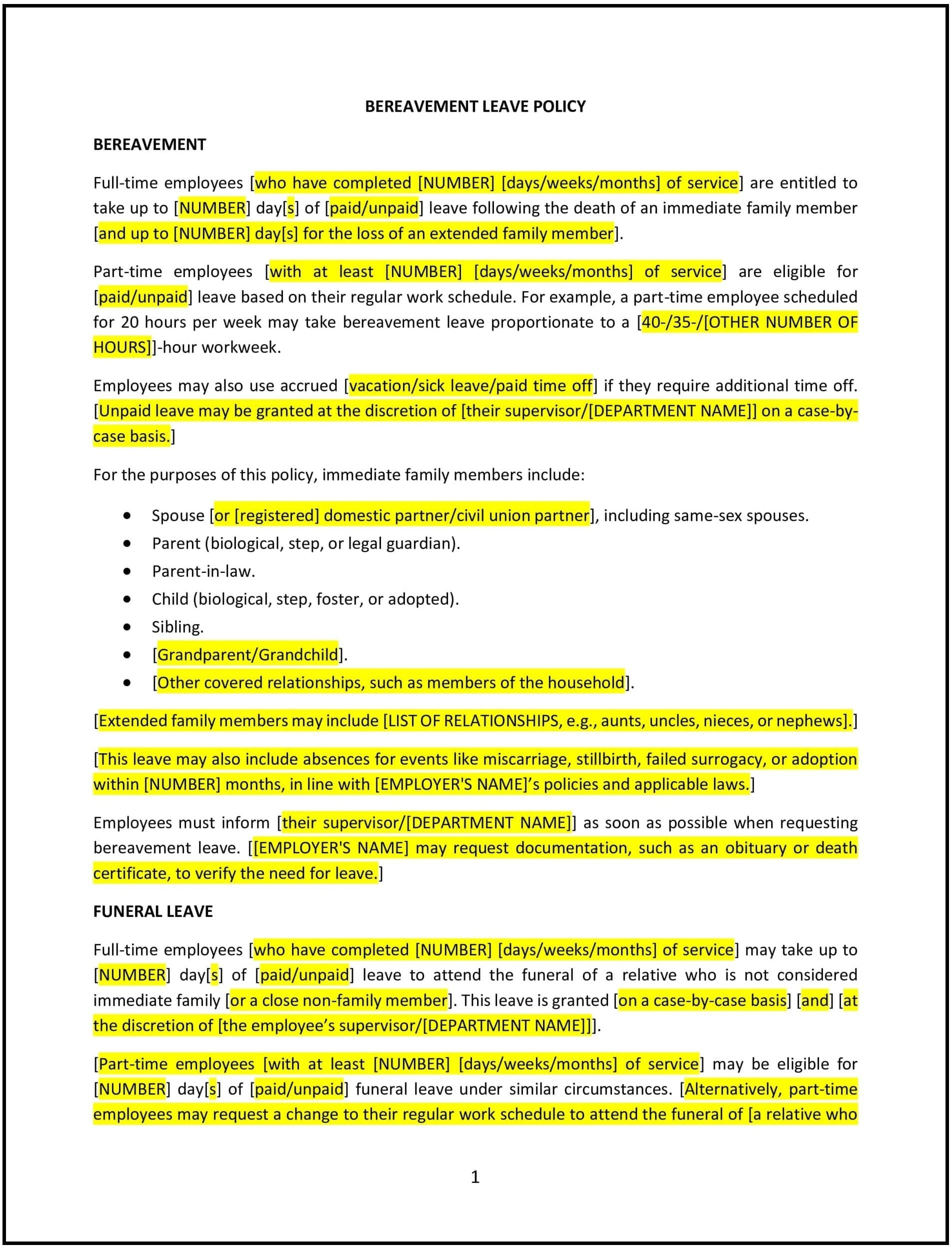Bereavement leave policy (North Carolina): Free template
Got contracts to review? While you're here for policies, let Cobrief make contract review effortless—start your free review now.

Customize this template for free
Bereavement leave policy (North Carolina)
A bereavement leave policy helps North Carolina businesses support employees during times of personal loss by providing them with time off to grieve the death of a close family member. The policy outlines the company’s approach to bereavement leave, including how much time employees are entitled to, the process for requesting leave, and any documentation required.
By adopting this policy, North Carolina businesses can demonstrate compassion for employees during difficult times while ensuring that business operations continue smoothly.
How to use this bereavement leave policy (North Carolina)
- Define eligibility: Specify which employees are eligible for bereavement leave, including whether it applies to full-time, part-time, or temporary employees.
- Set leave duration: Outline how many days of leave employees are entitled to based on the relationship with the deceased (e.g., immediate family, extended family).
- Clarify documentation requirements: Specify if employees need to provide proof of the death, such as a death certificate, obituary, or other documentation.
- Address pay during leave: Specify whether bereavement leave will be paid or unpaid, and whether employees may use other types of leave, such as vacation or sick time, during their bereavement period.
- Reflect North Carolina-specific considerations: Ensure the policy aligns with North Carolina labor laws, including any state-specific regulations related to leave entitlements.
Benefits of using this bereavement leave policy (North Carolina)
This policy provides several benefits for North Carolina businesses:
- Supports employees during difficult times: Bereavement leave offers employees the time they need to grieve and attend to family matters without the added stress of work obligations.
- Enhances employee retention: A compassionate leave policy helps retain employees by demonstrating the company’s commitment to their well-being and personal needs.
- Reduces absenteeism: By offering paid or unpaid leave during times of loss, employees are less likely to be absent without notice or to struggle with work-life balance during difficult times.
- Demonstrates company values: A clear bereavement leave policy reflects the company’s values of empathy and support for employees’ personal lives.
- Helps maintain productivity: By offering bereavement leave, businesses allow employees to manage personal loss while ensuring that the company is prepared to handle their absence in a structured way.
Tips for using this bereavement leave policy (North Carolina)
- Communicate the policy clearly: Ensure employees are aware of the policy and know how to request bereavement leave. Include the policy in the employee handbook and review it during onboarding.
- Be flexible: While the policy sets guidelines for leave, be flexible in exceptional cases and consider the unique circumstances of the employee’s situation.
- Ensure consistency: Apply the policy consistently across all employees to avoid claims of unequal treatment or discrimination.
- Review the policy regularly: The policy should be reviewed periodically to ensure it aligns with any changes in North Carolina’s labor laws or business needs.